UFC 301 Review: Alexandre Pantoja Secures Flyweight Title in Dominant Win Over Steve Erceg in Rio
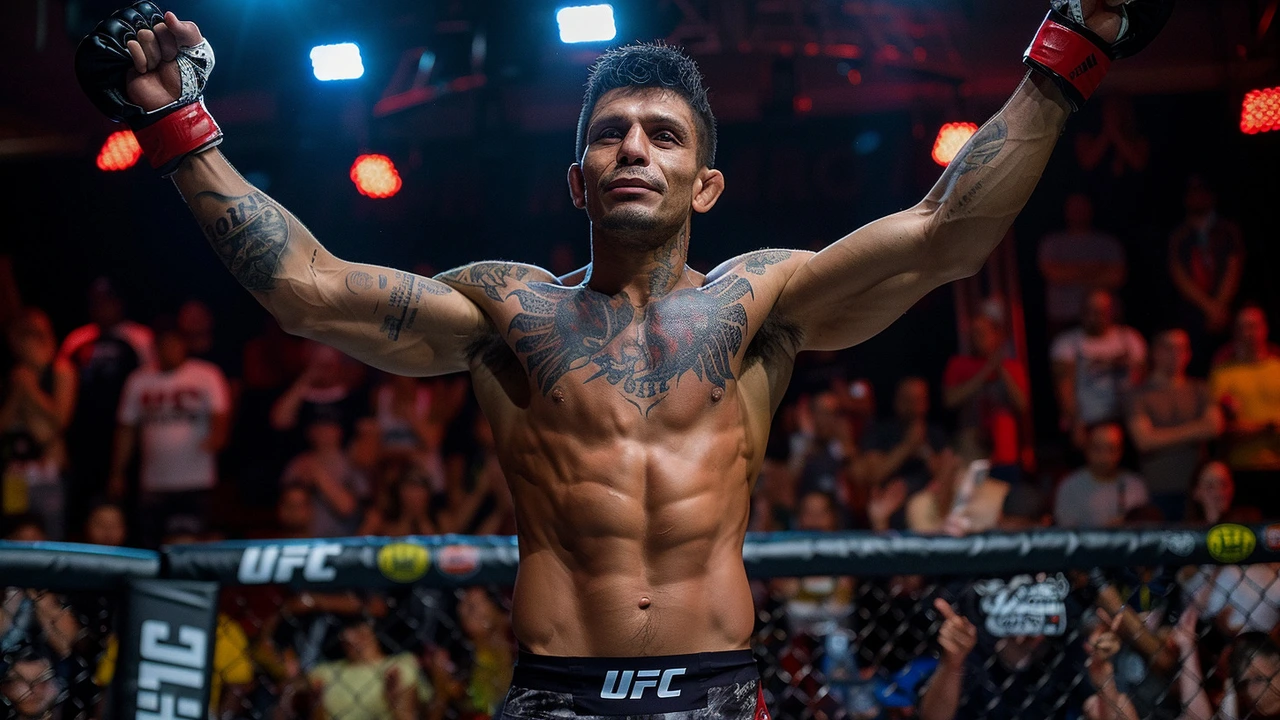
UFC 301: A Riveting Defense of the Flyweight Title
In the electrifying atmosphere of Rio de Janeiro, Alexandre Pantoja once again proved his mettle by defending his UFC flyweight title against Steve Erceg at the highly anticipated UFC 301 event. The fight, which extended for the full five rounds, was a testament to both fighters' abilities and determination, culminating in Pantoja's victory through a unanimous decision. This win not only bolstered Pantoja's career but also emblematically represented his triumphant return to Brazil, where he once left broken but now returned as a defending world champion. The success of Alexandre Pantoja is a narrative of resilience and strategy that highlights the competitive spirit of the UFC's flyweight division.
Background to the Bout
Alexandre Pantoja's journey has been anything but ordinary. From humble beginnings and financial struggles in Brazil, he rose through the ranks of mixed martial arts to reach the pinnacle of the UFC flyweight division. His opponent, Steve Erceg, positioned as the 10th in the UFC rankings, posed a strategic but manageable challenge for the seasoned Pantoja. While some critics doubted the competitiveness of the matchup, the fight itself was a showcase of skill, with both fighters pushing the limits of endurance and strategy.
Details of the Fight
The bout was intensely contested, with Erceg applying pressure and demonstrating his own set of skills. However, Pantoja's experience and tactical acumen were evident as he navigated the attacks and implemented his game plan effectively. By maintaining control and delivering calculated strikes, Pantoja managed not only to defend his title but also to assert his dominance in the flyweight category. The unanimous decision in his favor was reflective of his superior performance throughout the match, a result eagerly celebrated by fans and analysts alike.
The Flyweight Division: A Competitive Landscape
The UFC's flyweight division remains one of the most dynamic and challenging categories. With fighters like Deiveson Figueiredo and Brandon Moreno, who have already shown their prowess in previous encounters, the competition remains stiff. Pantoja's victory sets the stage for future high-stakes contests that could define his career and his legacy in comparison to greats like Demetrious Johnson. His expressed desire to defend the belt three times underscores his ambition and commitment to excel in a division teeming with talent.
What's Next for Pantoja?
Looking ahead, potential matchups against fighters such as Brandon Royval and Amir Albazi loom on the horizon. These contenders, known for their skill and determination, could pose significant challenges to Pantoja's reign. The strategic planning for future fights will be crucial as Pantoja aims to solidify his legacy and potentially surpass the benchmarks set by legends of the sport. His commitment to the sport and his division is clear, and his next steps will be eagerly watched by fans and critics alike.
Conclusion
In conclusion, UFC 301 was not merely a display of individual talent but a broader testament to the competitive and ever-evolving nature of the UFC's flyweight division. Alexandre Pantoja's successful title defense against Steve Erceg in Rio de Janeiro was a moment of pride and a demonstration of athletic prowess that fans will remember for a long time. As the flyweight champion looks to the future, the global UFC community remains more vibrant and anticipatory than ever, ready for the next chapter of high-octane MMA action.

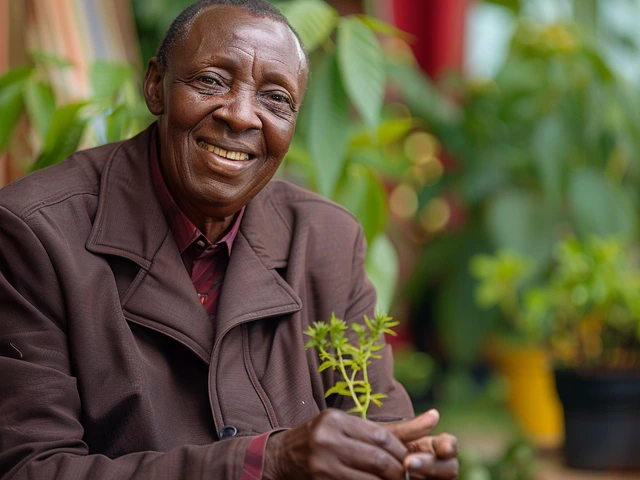
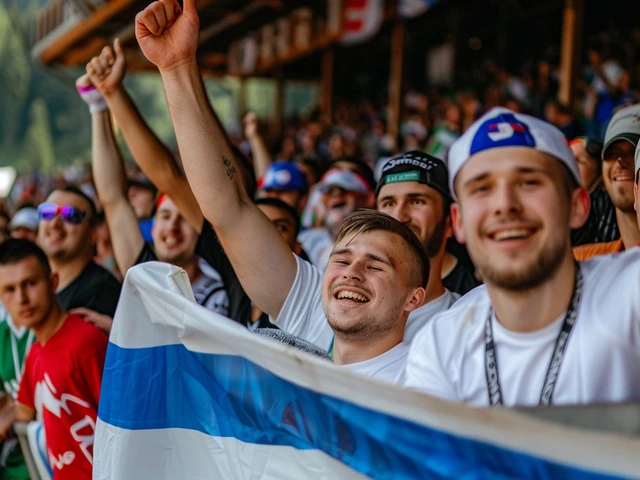

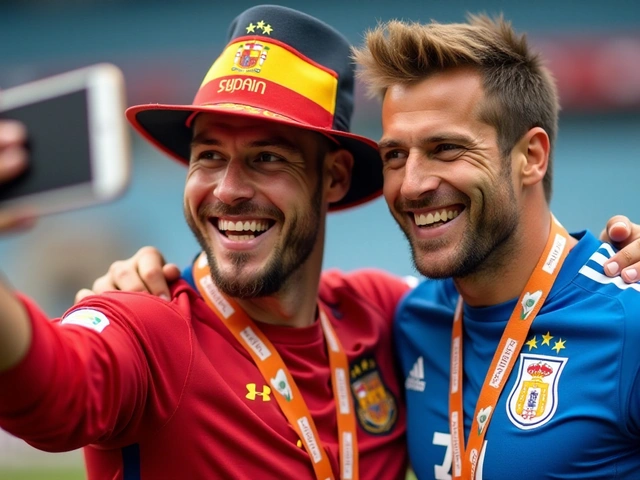
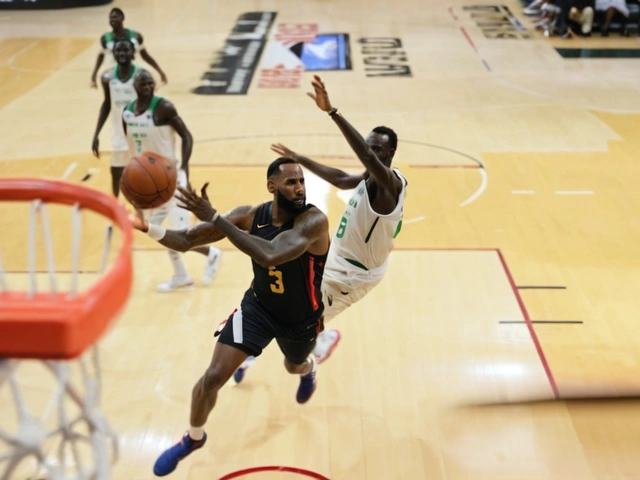
Nicholas Mangraviti
May 5, 2024 AT 12:18Pantoja's fight shows how discipline beats hype. He stayed calm under fire. The fight reminds us that perseverance yields reward. Fans should celebrate his strategic mind.
Jared Greenwood
May 5, 2024 AT 13:20Look, Pantoja's execution was a textbook case of positional dominance. His striking cadence and grappling control left Erceg scrambling, showcasing superior fight IQ. The Brazilian's game plan was locked in, no room for doubt. This is the kind of elite-level competition the market should broadcast.
Sally Sparrow
May 5, 2024 AT 14:26The event was marketed as a blockbuster, yet the outcome felt inevitable. Pantoja's unanimous decision reflects a lack of true contest, a safe bet for the promotion. Erceg's attempts were competent but never threatened the champion’s core. Critics will argue that the fight lacked the spark that defines a classic. Still, the narrative of redemption for a hometown hero sells tickets.
Eric Yee
May 5, 2024 AT 15:33Yo, I respect the hype but gotta say Pantoja kinda rode that crowd wave. His moves were slick, no doubt, but Erceg gave it his all-just not enough to flip the script. The vibe in Rio was electric, colors everywhere, culture pulsing through each round. It's a solid win, but I think the UFC could spice things up next.
Sohila Sandher
May 5, 2024 AT 16:40What an amazin fight! Pantoja showed why he belongs on the top tier. The Brazilian crowd was roarin and the energy was defintely contagious. Keep pushin and the champ will keep crackin new records.
Anthony Morgano
May 5, 2024 AT 18:03Totally agree! 🚀 Pantoja’s stamina was off the charts and he made it look easy. Can’t wait to see his next opponent! 😊
Holly B.
May 5, 2024 AT 19:26Your enthusiasm is commendable. It is essential to acknowledge the technical proficiency displayed by both athletes. Such performances elevate the sport’s reputation.
Lauren Markovic
May 5, 2024 AT 20:50Indeed, the technical elegance cannot be overstated. Pantoja’s footwork mirrored a choreographed dance, each step measured and purposeful. Meanwhile, his striking rhythm maintained a tempo that kept Erceg perpetually on the defensive. The five‑round war highlighted the importance of cardio conditioning, as fatigue never appeared to compromise execution. Moreover, the judges’ unanimous decision underscores the clarity of dominance across all scoring criteria. Fans worldwide felt the surge of adrenaline, especially when the Brazilian crowd erupted after each decisive blow. It is also worth noting that the fight’s pacing contributed to a sustained narrative tension, a hallmark of elite matchups. The strategic adjustments made in the second half were subtle yet impactful, showcasing fight IQ at its peak. Pantoja’s ability to blend Muay Thai clinches with precise jab combinations set a benchmark for future contenders. The event also served as a cultural showcase, with Rio’s vibrant atmosphere permeating the arena. Such an environment can elevate a fighter’s performance, feeding off the collective energy. In contrast, Erceg displayed commendable resilience, absorbing punishment while seeking openings, though those seldom materialized. This dichotomy of aggression versus poise made for an compelling case study in fight dynamics. As we look ahead, potential matchups with Royval or Albazi promise fresh challenges, ensuring the division remains competitive. Ultimately, Pantoja’s victory not only cements his legacy but also enriches the tapestry of the flyweight division’s history. 🎉